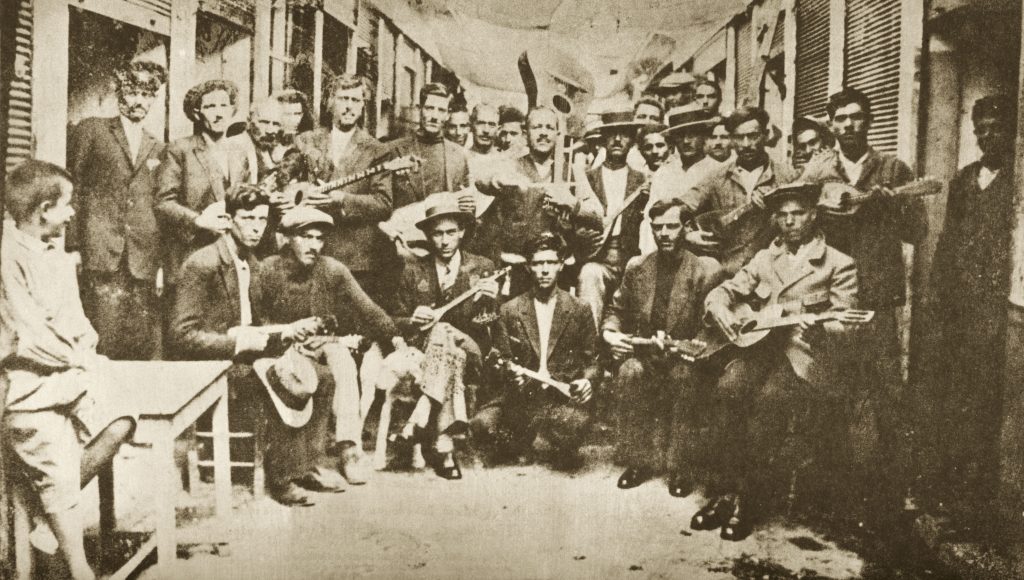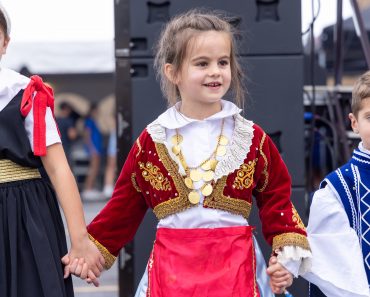Greece’s interwar years (1923-1940) remain a pivotal period that, despite political turmoil and social contradictions, shaped a unique and lasting Greek musical and cultural identity. This era saw the blossoming of rebetiko and retro music—genres that have endured as vital elements of Greece’s artistic landscape.

FAL, via Wikimedia Commons
Composers like Vassilis Tsitsanis, Kostas Giannidis, Michalis Souyioul, and Giannis Papaioannou, and voices such as Attik, Sofia Vembo, and Danai Stratigopoulou, created melodies that still resonate deeply within Greek daily life.
On Saturday, August 23, a special musical tribute titled “Songs of the Interwar Period – The Light in Between” will be performed at the enchanting Little Epidaurus Theatre, as part of the 70th edition of the iconic Athens Epidaurus Festival.
Presented by Miltos Logiadis and Antonis Sousamoglou, the concert is a kaleidoscope of songs from Greece and Europe during the interwar years—a time when urban songs coexisted with Smyrna’s amanedes and the influence of German cabarets. This period was marked by the aftermath of the Asia Minor Catastrophe and the simultaneous flourishing of Greek art music.
The concert features a talented ensemble including: vocalist Nadia Kodogeorgi (also stage director), Dimitris Paksoglou (vocals), Miltos Logiadis (piano and conductor), Antonis Sousamoglou (violin and orchestration), and others, weaving together orchestral arrangements with soulful vocal performances.
Honoring the Icons of an Era
Attik (Kleon Triantafyllou)

Born in Athens and raised in Egypt, Attik lived in Paris until 1930 before returning to Greece, where he founded the influential “Mandra of Attik” artistic group. Known for his improvisational talent, Attik’s songs like “Zitate na sas po” remain classics, encapsulating the vibrant cabaret culture of the time.
Michalis Souyioul
A prolific composer born in the Ottoman Empire, Souyioul emigrated to Athens in 1920 and later toured Europe with an Argentinian orchestra. With over 700 songs to his name, including “Ασ’ τα τα μαλλάκια σου” and “Το τραμ το τελευταίο,” he masterfully blended tango, waltz, folk, and romance styles, profoundly influencing Greek popular music.
Kostas Giannidis
A Smyrna-born composer and conductor, Giannidis studied music in Germany and worked extensively in Greek musical theatre. Honored with the first prize at the Barcelona Mediterranean Song Festival, his compositions like “Ξύπνα αγάπη μου” (performed by Nana Mouskouri) hold a special place in Greece’s light music tradition.
Giannis Papaioannou
Orphaned early and displaced by the Asia Minor Catastrophe, Papaioannou settled in Athens and emerged as a pioneering composer of Greek folk music. A close collaborator with Vassilis Tsitsanis, he was the first Greek popular music composer to perform for the diaspora in America. Famous songs include “Prin to Charama Monachos” and “Den se thelo pia.”
Nikos Skalkottas
A leading 20th-century Greek classical composer, Skalkottas studied at the Athens Conservatory and later in Berlin. He is recognized as a key figure alongside giants like Stravinsky and Shostakovich. His repertoire, which includes concertos, symphonic suites, and chamber music, remains a testament to Greece’s rich classical heritage.
Vassilis Tsitsanis
One of the most influential figures of rebetiko and Greek folk music, Tsitsanis was largely self-taught and mastered stringed instruments like the bouzouki and mandolin. Relocating to Thessaloniki during World War II, he opened the famed “Tsitsanis Ouzeri” and composed some of his best-known songs, including “Sinnefiasmeni Kyriaki” (Cloudy Sunday).
For tickets please go here.







